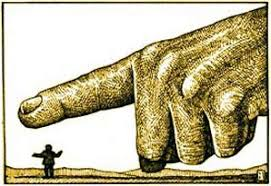
Nothing to Fear but Fear Itself?
On March 4, 1933, at his first inauguration, President Franklin Roosevelt gave a much-anticipated speech that was broadcast by radio nationwide. Tens of millions of Americans heard it, according to Wikipedia.
It was the peak of the Great Depression when unemployment reached more than 25 percent and bank and farm crises had a firm grip on the country. In Germany, Adolph Hitler had been named chancellor and just a few days before Roosevelt’s speech, Nazis began rounding up their political opponents. An ominous event.
“So, first of all,” said the president, “let me assert my firm belief that the only thing we have to fear is…fear itself.”
It was a pivotal speech in which Roosevelt rallied the nation to address its problems, but I’m sure many Americans were skeptical because there appeared to be a lot to fear.
Hate on the Rise
That seems to be the case today. The political situation is a mess; war seems to again be a popular way of solving differences; hate appears to be on the rise; and the threat of nuclear war hangs over our heads. And those are the communal fears. Our personal ones may be even more anxiety ridden.
So, yes, there is plenty of reason for fear. The question is how to deal with it.
One thing that helps me put fear in perspective is a sense of history. Things have been much worse.
I’ve been reading a book called “Jesus, an Historical Approximation” by Spanish theologian and Scripture scholar, José Antonio Pagola. In it, Pagola uses the opinions of modern Scripture scholars, who use archeology, cultural anthropology, historical writings and other scientific means, to describe the world in which Jesus lived.
Fear Was Rampant
In a backwater town in rural Galilee, Jesus lived at a time when fear was rampant, especially for people at the margins of society, as was evidently the case of his family and friends. Galilee, like much of the surrounding territory, was a vassal state of the vast and powerful Roman Empire.
Few Galileans, including Jesus’ family, had Roman citizenship. Wealth, power and formal education was limited to the principal cities, and then only to the ruling, administrative and merchant classes. Women had zero power. Roman rule was harsh, and frequent rebellions were met with swift and cruel punishments. Roman taxes, say the scholars, took at least a quarter of the income of the peasant class. Life for them was particularly harsh.
“They were, and still are, Jesus’ favorites,” writes Pagola: the sick who suffer without hope, the starving, those who walk through life without love, home or friendship; women abused by their husbands or partners; those condemned to a lifetime in prison; those who feel overwhelmed by guilt; prostitutes enslaved by so many evil interests; children who have never known their parents’ love; people forgotten or excluded…; those who die alone and are buried without … a prayer; those whom only God loves.”
Jesus’ Answer
What was Jesus’ answer to all these problems and conditions? The story of the prodigal son. Most of you know it, but just in case you’ve forgotten:
A man had two sons. The younger one asked his father for an advance on his inheritance. He left home and went off “to a far country” to blow it in every direction. When he had spent everything, a famine arose there and he became so desperate he hired himself out as a tender of swine. And he was so hungry he yearned to eat the nearly inedible pods fed to the animals.
Coming to his senses, he returned home and begged forgiveness of his father. But his father, instead of showing any bitterness or resentment, was overjoyed to have his son back and threw a welcome-home party.
Of all that Jesus taught, his revelation of a God who is a loving father is, for me, the most important. Having such a father makes fear manageable and makes sense of Roosevelt’s speech.




